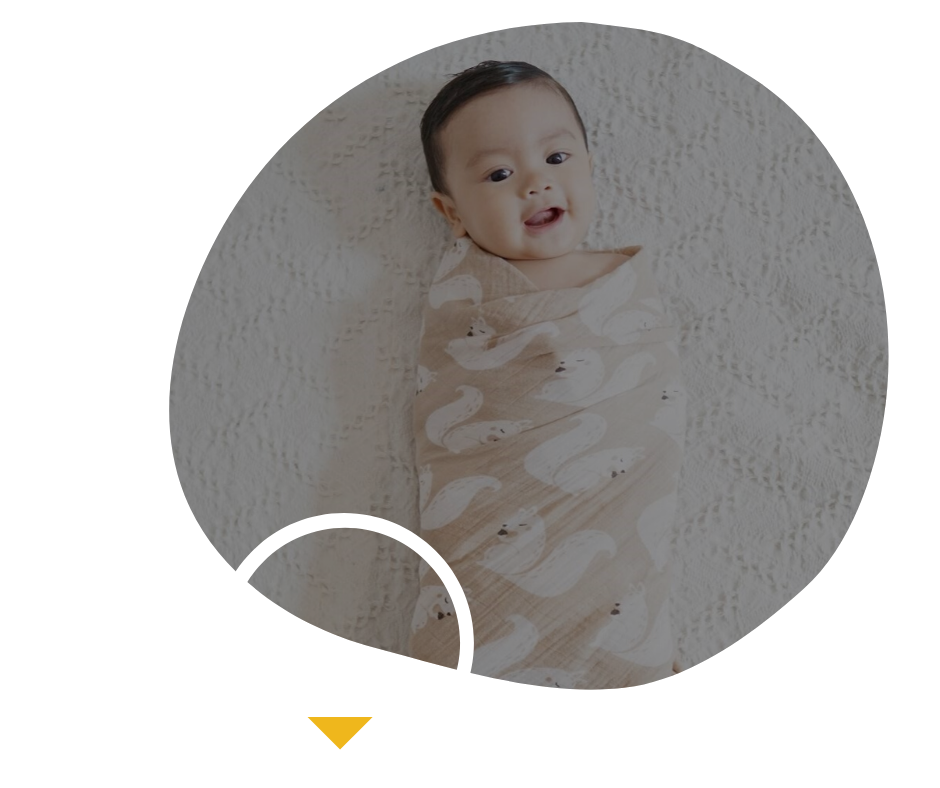
All Wrapped Up: How to Swaddle Your Baby
Learn the basics of swaddling and how this calming technique benefits babies.
Fatherhood often feels like being dropped into a foreign land without a guide. It may have taken nine months to get there, and perhaps you picked up some helpful hints along the way, but suddenly there is a whole new language and set of customs to learn – and it’s all important.
The good news is that raising a baby isn’t quite as bewildering as it first seems. However, the job is infinitely easier if you learn a few time-honored tricks. Swaddling is one of those age-old traditions that persists for a reason and learning how to bundle up your baby correctly can bring a sense of calmness to your days with a newborn.
What is swaddling?
You may have noticed that the first time your baby was handed to you at the hospital that it was wrapped tightly in a blanket, much like a well-made burrito. That wasn’t just for looks; swaddling a baby helps them feel safe and secure as they get used to life outside the womb. After all, they’ve just spent months warmly ensconced in close quarters before being thrust into a loud, bright environment.
Aside from that, their limbs seem to have a life of their own thanks to the unintentional flailing caused by the aptly-named startle reflex. Swaddling helps keep babies warm, makes them feel safe and secure, and can lead to better sleep, which is valuable in those first weeks.
How to swaddle
Swaddling is one of those things that looks pretty simple until you go to do it, and then it seems rather complicated until you’re experienced. It’s not hard, though, you’re just new to doing it. Here’s how:
- Start by spreading a baby blanket out in a diamond shape (with a corner at the top and bottom) on a flat surface. Take the top corner and fold it down toward the center about 6 inches.
- Place the baby on the blanket with the edge of the folded corner at her shoulders and her feet pointing toward the bottom corner of your diamond-shape.
- Gently straighten your baby’s left arm, so it rests at her side and wrap the left side of the blanket over that arm and across her chest, tucking it beneath her right arm and back.
- While baby’s left arm is covered and right arm still free, fold the bottom corner of the blanket up and tuck it into the first fold of the blanket, under her chin toward her right shoulder.
- Straighten baby’s right arm, so it rests at her side and pull the blanket’s right side across her body to tuck it firmly under her left side.
- Check your work. Is baby snugly wrapped? Make sure she’s not wrapped too tightly by making sure that you can slip three fingers between your baby’s chest and the blanket.
For safety’s sake, always put your baby on his or her back to sleep, in all situations, but especially when they’re swaddled, and check periodically to make sure they’re not overheating. If your baby seems red-faced or sweaty, unwrap and remove some clothes, or turn the A/C down a bit. You can swaddle your infant any time they’re fussy or sleepy, as long as you’ve checked to make sure they’re not crying due to hunger or a wet diaper first.
Once your baby is more active and able to roll over independently, it’s time to stop swaddling. This generally happens around three to four months. If they’re particularly attached to being swaddled, you may want to slowly transition away from doing it before they’re able to roll over, starting with leaving their arms out of the swaddle.
If you find yourself having difficulty managing a squirmy baby and the complexities of swaddling, there are baby products with Velcro and a special design that simplify the process. There’s no shame in adopting a shortcut – whatever it takes to find some peace and quiet. However, it’s good to practice with a regular blanket just in case you find yourself without a pre-designed wrap.
Every baby is different, and some infants are perfectly quiet and content without swaddling, in which case it’s not necessary. However, if you have a fussy baby, it’s a time-tested tool worth trying out as you attempt to find a calming solution.
Babies can be unpredictable, and swaddling may not work immediately – quieting your crying baby may involve a combination of swaddling, shushing, bouncing, rocking, and walking. You’ll have to experiment to find the technique that works best for your baby, but a snug swaddle is a good place to start. Work on your baby burrito-wrapping skills and enjoy your new bundle.
The mission of CDR’s Fatherhood program is to empower dads to reach their goals and to be the best parents they can be. Check out our Rookie Dads program for new and expectant fathers. In this program, dads will receive hands-on experience with diapering, swaddling, and feeding a baby. Visit our website to view upcoming classes.
Don't forget to like us on Facebook!
Phone: (757) 345-2832
Address: 210 Packets Court, Williamsburg VA

